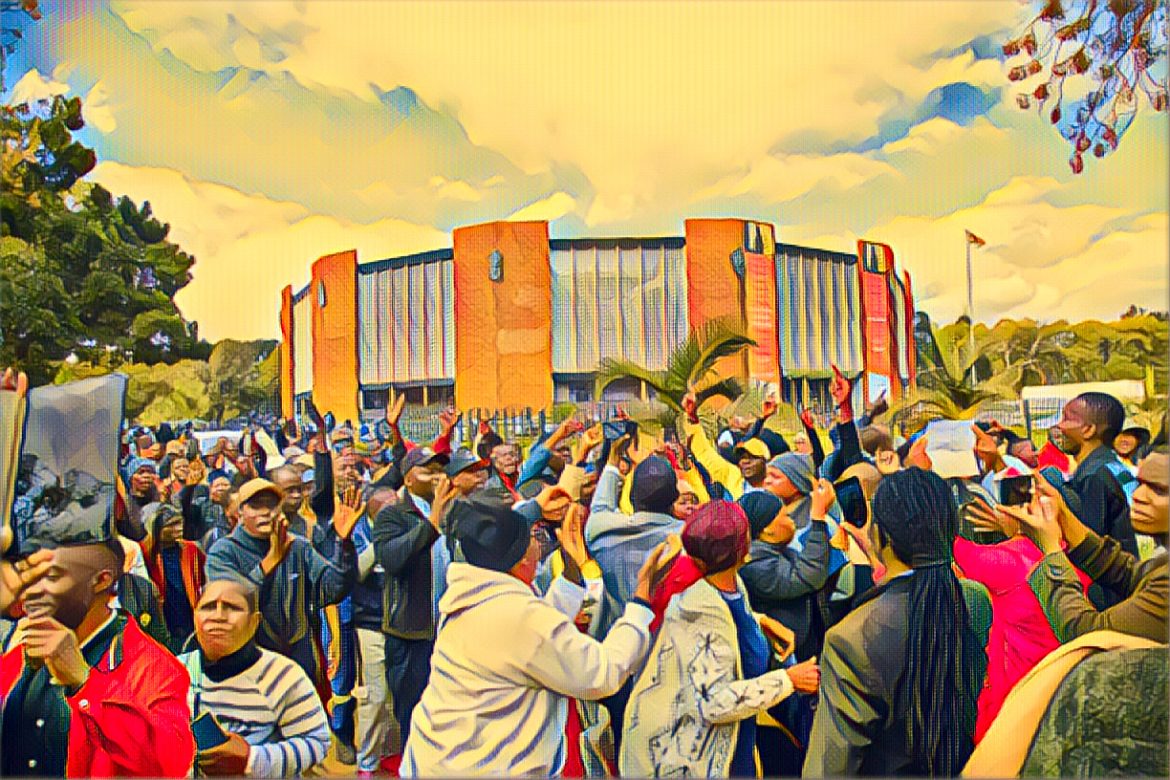In Zimbabwe, tensions are escalating as the government issues a stern warning to the opposition, following threats of protests against the detention of several party activists. The opposition has accused the government of unlawful arrests and politically motivated detentions, a claim that has ignited a heated political standoff.
The warning came from the Minister of Home Affairs, Kazembe Kazembe, who addressed the media, cautioning the opposition against mobilizing mass protests. “Your days are numbered,” Kazembe declared, emphasizing that the government will not tolerate actions that threaten national security. He accused the opposition of trying to destabilize the country and warned of severe consequences for any unlawful activities.
This development follows the recent detention of numerous opposition activists from the Citizens Coalition for Change (CCC) party. The activists were arrested on charges ranging from inciting public violence to subversion. The CCC, led by Nelson Chamisa, has vehemently denied these allegations, arguing that the arrests are part of a broader crackdown on dissent ahead of the upcoming general elections.
“The government is using these arrests to intimidate and silence us,” said Fadzayi Mahere, CCC’s national spokesperson. “We will not be cowed. Our constitutional right to peaceful protest and assembly must be respected.”
The opposition has called for nationwide protests, demanding the immediate release of their detained members and an end to what they describe as state-sponsored persecution. These planned protests have raised fears of potential clashes between demonstrators and security forces, which have been deployed in significant numbers across major cities.
In response, Minister Kazembe reiterated the government’s stance on maintaining order and safeguarding public safety. “We have deployed security forces to ensure peace and stability. Any attempt to disrupt the peace will be dealt with decisively,” he stated.
The political climate in Zimbabwe has been increasingly volatile, with frequent accusations of government repression and human rights abuses. International human rights organizations have often criticized the Zimbabwean government for its heavy-handed tactics against opposition parties and civil society groups.
Amnesty International issued a statement expressing concern over the recent arrests and urging the Zimbabwean authorities to respect human rights and uphold the rule of law. “The arrest and detention of opposition activists is a worrying sign of shrinking civic space in Zimbabwe. We call on the government to release all those arbitrarily detained and to ensure that citizens can exercise their rights without fear of retribution,” the statement read.
The United States and European Union have also voiced concerns, calling for dialogue and peaceful resolution of political differences. “Zimbabwe’s future depends on inclusive political processes and respect for human rights,” said a spokesperson for the U.S. State Department.
Despite the escalating tensions, there are calls from various quarters for calm and dialogue. Religious leaders, civil society groups, and some politicians have urged both the government and the opposition to engage in constructive dialogue to address the underlying issues. “We need to come together as a nation and find peaceful solutions to our problems,” said Bishop Ancelimo Magaya, a prominent religious leader.
The situation remains fluid, with the potential for either a peaceful resolution or further confrontation. As Zimbabwe navigates these turbulent political waters, the eyes of the world are watching closely. The hope is that cooler heads will prevail, leading to a de-escalation of tensions and a focus on addressing the country’s pressing economic and social challenges.
For now, the warning from the government and the opposition’s call for protests have set the stage for a critical period in Zimbabwe’s political landscape. The coming days and weeks will be crucial in determining whether the nation can steer away from conflict and towards a path of reconciliation and progress.
Source: newzimbabwe.com


